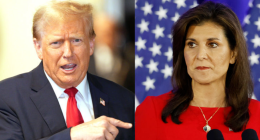The Bank for International Settlements (BIS) has found that despite their promise, the use of stablecoins is hindered by international regulatory fragmentation, in a survey of 11 jurisdictions. The publication said the need for stablecoin regulation is “urgent,” but diversity in regulation poses risks for their integration into the international financial system.
Most regulatory approaches are similar in their authorization of issuers, reserve requirements, risk management and Anti-Money Laundering (AML) measures, the report noted. Differences in the structuring of stablecoin issuances can cause them to be regulated under banking, securities, commodities or payment system frameworks, however.

There are also differences in the details of regulations, redemption policies and the definition of a stablecoin. For example, some jurisdictions regulate algorithmic stablecoins, which are not pegged to external assets, identically to fiat-pegged stablecoins, but the United Kingdom, Japan and Singapore regulate them separately, and jurisdictions in the United Arab Emirates ban them altogether. The report said:
“Differences appear to be largely driven by the variety of stablecoin design features, perceived risks associated with their issuance and the nature of the issuing entity. […] The resulting fragmentation may pose significant challenges for an integrated financial system.”
Reserves may have to be segregated in different ways, placed in the hands of custodians subject to differing requirements or, in the case of the U.K., placed in a statutory trust. Audit and liquidity requirements also vary greatly.
Related: ‘Primitive’ stablecoin lacks mechanisms that maintain fiat stability: BIS report
Technological and cybersecurity requirements tend to be more uniform. The interaction of stablecoins with central bank digital currency, tokenized deposits and other digital assets needs to be explored more thoroughly.

The report follows BIS recommendations on stablecoin regulation released in February. BIS urged governments to cooperate and address disclosure, risk management, redemption and other issues.
Numerous international bodies, such as the International Monetary Fund, Financial Stability Board, Financial Action Task Force, Basel Committee on Banking Supervision and International Organization of Securities Commissions, also have policies on stablecoins that they hope to advance.
Magazine: The DeFi bots pumping Solana’s stablecoin volume
Also Read More: World News | Entertainment News | Celebrity News








